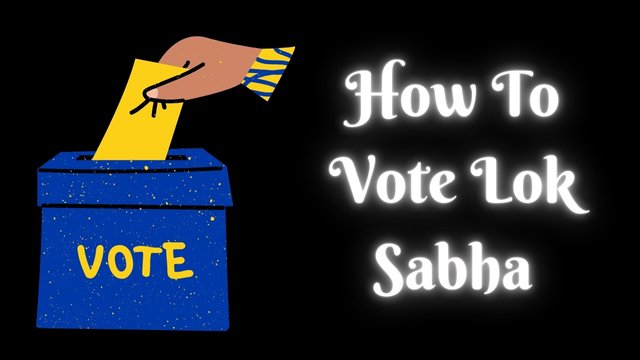Kamala Harris Parents Biography
Kamala Harris, the Vice President of the United States, has become an icon for breaking barriers and shattering glass ceilings. Her remarkable achievements are deeply rooted in the inspiring stories of her parents, Shyamala Gopalan Harris and Donald Harris. Born into vastly different cultural and geographical backgrounds, Shyamala and Donald shared a commitment to education, social justice, and the pursuit of excellence, values they instilled in their daughters, Kamala and Maya Harris.
Shyamala Gopalan Harris: A Trailblazing Scientist and Activist
Shyamala Gopalan Harris was born on April 7, 1938, in Madras (now Chennai), India, into a Tamil Brahmin family. Her father, P.V. Gopalan, was a high-ranking civil servant, and her mother, Rajam, was a homemaker. Shyamala grew up in a family that valued education and discipline, with her father’s progressive views shaping her outlook on life.
Shyamala’s academic brilliance was evident early on. She earned her undergraduate degree in home science at Lady Irwin College in Delhi, a premier institution for women’s education. Driven by an insatiable curiosity and a passion for science, she applied for a master’s program in nutrition and endocrinology at the University of California, Berkeley. In 1958, at the age of 19, she traveled to the United States on a scholarship to pursue her studies, breaking barriers as a young Indian woman studying abroad during a time when such opportunities were rare.
At Berkeley, Shyamala earned her Ph.D. and became a pioneer in cancer research. Her work on the hormone receptor–estrogen connection in breast cancer laid the foundation for many advances in the field. Beyond her scientific achievements, Shyamala was a committed civil rights activist. She participated in protests and rallies, advocating for racial equality and justice. Her activism and intellectual rigor shaped her parenting philosophy, teaching her daughters the importance of fighting for their beliefs and standing up for the marginalized.
Donald J. Harris: A Distinguished Economist and Thinker
Donald J. Harris was born on August 23, 1938, in Brown’s Town, Jamaica. He grew up in a modest household with parents who emphasized the value of hard work and education. Donald’s intellectual curiosity and dedication led him to excel academically, eventually earning a scholarship to study in the United States.
He attended the University of California, Berkeley, where he pursued a Ph.D. in economics. His academic journey was marked by a deep interest in the intersection of economics, development, and social justice. Donald’s research focused on economic growth and development policies, particularly in developing countries. Over the years, he became a prominent figure in academia, teaching at Stanford University and contributing extensively to the field of economics.
Like Shyamala, Donald was deeply involved in the civil rights movement during his time at Berkeley. His political activism and academic pursuits reflected a commitment to addressing systemic inequalities and advocating for a fairer society. His intellectual depth and passion for justice left a lasting impression on his daughters.
A Meeting of Minds: The Union of Shyamala and Donald
Shyamala and Donald met during the civil rights movement at Berkeley. Drawn together by their shared passion for justice and social change, they formed a bond that transcended cultural and geographical boundaries. The couple married in 1963, defying societal norms and expectations at a time when interracial relationships faced significant prejudice.
Their union was a blend of two rich cultural heritages. Shyamala’s South Indian roots and Donald’s Jamaican upbringing created a unique environment for their children. Kamala and her younger sister, Maya, were raised with an appreciation for their diverse heritage and an understanding of the struggles and triumphs of their parents.
Raising Kamala and Maya: A Household of Values and Vision
Shyamala and Donald instilled in their daughters a deep respect for education, a commitment to social justice, and a strong sense of identity. Despite their divorce when Kamala was seven years old, both parents remained active in their children’s lives, shaping their worldviews and aspirations.
Shyamala took the lead in raising Kamala and Maya, often bringing them to civil rights marches and immersing them in a community that valued activism and advocacy. She ensured that her daughters were connected to their Indian heritage, taking them to Hindu temples and teaching them about Indian culture and traditions. At the same time, she encouraged them to embrace their African American identity, fostering a sense of pride in their multifaceted backgrounds.
Donald, though less involved in their daily lives after the divorce, continued to provide intellectual guidance and inspiration. His Jamaican heritage and insights into economic and social justice issues further enriched their upbringing.
The Legacy of Shyamala and Donald
Shyamala Gopalan Harris passed away in 2009 after a battle with colon cancer, but her legacy lives on through her daughters. Kamala often credits her mother as her greatest inspiration, describing her as a woman who taught her to “be a fighter” and “never take no for an answer.” Donald Harris remains a respected economist, contributing to discussions on economic policy and development.
The values and lessons imparted by Shyamala and Donald are evident in Kamala Harris’s career and leadership. As the first female Vice President, the first Black Vice President, and the first Vice President of South Asian descent, Kamala embodies the resilience, ambition, and dedication of her parents. Her sister, Maya Harris, has also made significant contributions as a lawyer, policy expert, and advocate for social justice.





